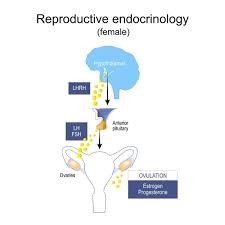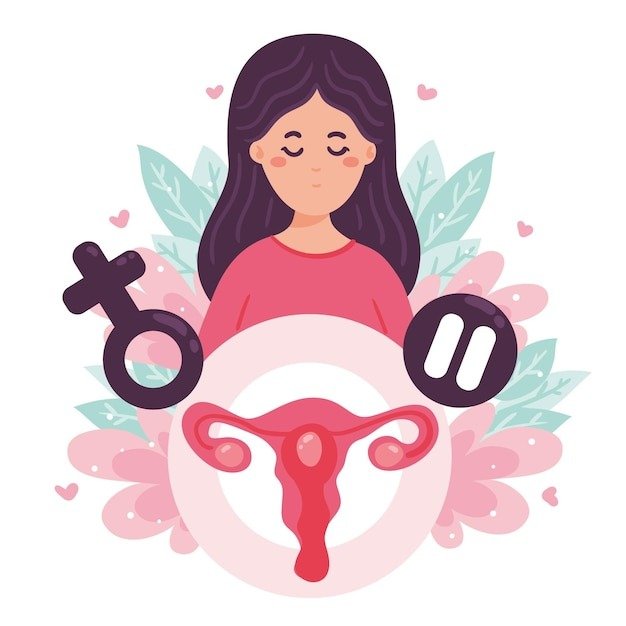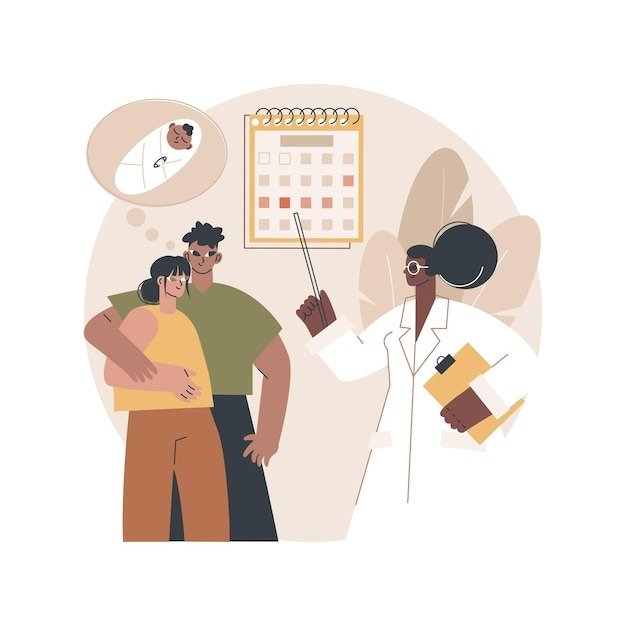Reproductive endocrinology and infertility are closely intertwined. Reproductive endocrinology is a specialized branch of medicine that focuses on the hormonal and glandular factors that impact reproduction. It involves the assessment and management of various hormonal imbalances and their effects on fertility.

What's the real connection between hormones and your ability to have children? The answer might surprise you.
What links Reproductive Endocrinology and Infertility?
Reproductive endocrinology and infertility are closely connected to each other. Reproductive endocrinology is related to hormonal and physiological aspects of reproduction. Here’s how fertility and endocrinology are connected:
- Hormonal regulation: Hormones play a crucial role in the reproductive system. It is important to properly understand the role of hormones like estrogen, progesterone, testosterone, FSH, and LH. These hormones regulate the menstrual cycle, ovulation and sperm production. Imbalances in the levels of these hormones may lead to reproductive endocrine infertility.
- Ovulation and Menstruation: Irregular menstruation or the absence of ovulation causes female infertility. Hence, hormonal imbalances occur due to reproductive endocrinology. It may cause irregular periods and ovulation. This can cause reproductive endocrine infertility.
- Polycystic Ovary Syndrome (PCOS): This is a common hormonal disorder among women of reproductive age. These may lead to irregular periods, ovulation, and ovarian cysts. These things contribute to fertility issues.
Wondering when is the right time to see a doctor? Find out below!!
Contact us for hassle-free assistance!
When should I see a reproductive endocrinologist?

Reproductive endocrinologists are experts who can help you understand and navigate your fertility journey. They can also provide medical help for pregnancy if needed. You should see a reproductive endocrinologist when you are struggling to have a baby. Here is when you should consider it:
1. If you are someone who is below the age of 35 years, you should try to conceive naturally until you reach the age of 35.
2. If you are over 35 years old, try and see for 6 more months. If there are still no positive signs of pregnancy, then it's time you should visit a reproductive endocrinologist.
3. But, you should immediately visit a reproductive endocrinologist if you are experiencing the following things:
- Irregular periods or extremely painful periods
- Going through more than one miscarriage.
- Treatments that may alter your fertility.
- Problems like endometriosis or PCOS.
4. In the case of men, if you are facing the following issues after more than one year of unprotected and regular sex. Then you should visit a reproductive endocrinologist if you have:
- Improper sexual function.
- Pain, swelling, or strange lumps in areas around the testicles.
- Weird breast growth.
- Sperm count lower than normal
Wondering if your problem can be solved by a reproductive endocrinologist? Go through the list of treatments offered by them to know if you should visit one!
What conditions or disorders do reproductive endocrinologists treat?

Reproductive endocrinology and infertility are closely related. Reproductive endocrinologists help people who can’t have babies. They figure out the reason behind reproductive endocrine infertility. In order to do so they help people by treating the following:
- PCOS
- Endometriosis
- Miscarriage
- Menopause
They also help people conceive babies in the following ways:
- Assisting them in Assisted reproductive technologies (IVF, IUI, ICSI)
- Perform various surgeries like myomectomy and tubal ligation reversal.
- They also perform surrogacy.
But how do doctors really pinpoint the root causes of infertility? Let's explore the diagnostic tests that reveal the hidden culprits.
What diagnostic tests are commonly performed by reproductive endocrinologists?
Reproductive endocrinologists perform various kinds of tests to evaluate the cause of infertility. The common diagnostic tests include:
- Semen analysis: This test is used to assess the quality, quantity and motility of the sperm. This helps to identify the cause of male endocrine reproductive infertility.
- Postcoital test: This test evaluates the interaction between sperm and cervical mucus after sex. This test aids in identifying if there are issues in sperm-cervical mucus compatibility.
- Hysterosalpingography: This is an X-ray test. It checks for blockages or abnormalities in the fallopian tubes and uterine cavity. This assists in identifying structural causes of infertility.
- Laparoscopy: This is a surgical test that helps in the visual inspection of pelvic organs. This helps in diagnosing conditions like
-Endometriosis
-Adhesions
-Ovarian cysts
- Immunologic Infertility Testing: This test assesses the body’s immune system. It checks if the immune system is producing antibodies that affect fertility. This test helps in identifying immunologic causes of reproductive endocrinology and infertility.
Do not lose hope!! You too can have a baby! Understand the possible treatments that are available!
What are the treatment options for infertility?

The infertility treatment varies depending on the age, cause and duration of infertility. There are various ways to restore fertility. Medications, surgeries and advanced techniques can help cure infertility. Here are some of the common treatment options for infertility:
- Fertility drugs: The drugs help women with infertility and ovulation issues. These drugs work like natural hormones to regulate ovulation and make conditions better.
- Surgery: Surgeries can sometimes treat causes that affect the fertility of the women. Laparoscopic surgeries or tubal surgeries are some of the common surgeries. They are performed to fix issues with the uterus, remove growths, or fix blocked tubes.
- Reproductive help: These are the methods that help couples to have a baby. These include IUI, IVF, and ICSI. These are some of the most effective assisted reproductive techniques used for treating infertility. Among that IVF is the most opted treatment worldwide. The first IVF in the world was in 1978 and according to ICMART since then at least 12 million IVF babies have been born.
- Fertility preservation allows individuals facing medical treatments that may affect their reproductive health to safeguard their fertility. This is especially relevant for cancer patients.






